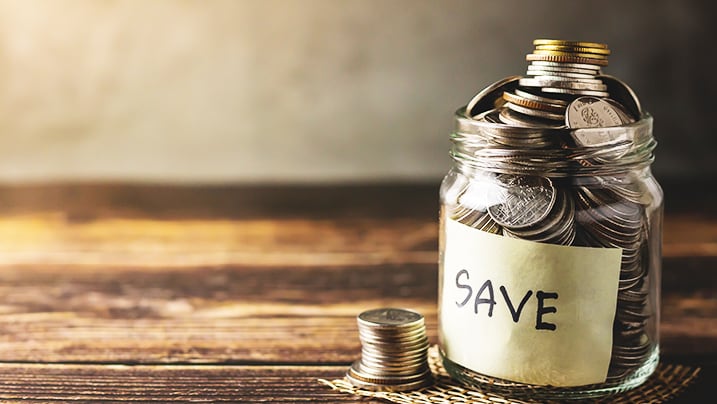Why can't you save money?
Before we introduce some tips, let's first analyze why some people are always unable to save money. In the view of us, the reason why many people can't save money is that they completely reverse the order of saving and consumption: the logic of these people is to spend money first and then save money. Because most of them don't spend money in a planned way, they usually find that their salaries are almost spent or even not enough at the end of the month, so they naturally can't save money.

Do you want to save money quickly?
Do these six things every month after receiving your salary. We believes you can save a lot of money quickly. Because everyone's financial situation is different, the company's benefits are also different, so these six things may not all apply to everyone, so please take your seats accordingly.
First thing: saving for retirement
In some countries, some companies and government departments generally provide retirement accounts. In these retirement accounts, employees can put a sum of money into the account every month, and the company or government department will also put a sum of money into the account for matching. This match is often considered a benefit. The matching amount is determined by the company or government department, so the matching amount will vary greatly.
Please make sure to deposit a sum of money into your retirement account every month so that you can get a free matching amount from your employer. If your income allows, please save as much as possible without exceeding the prescribed upper limit. At least in the United States, the money you put into your retirement account is exempt from federal and state taxes. Because the money in the retirement account can only be used after retirement, saving a pension can help you save a lot of money.
Second thing: purchase medical insurance
Medical insurance covers accidents, because every one of us will go to see a doctor in his life. If your company provides medical insurance, you must participate in it. If it does not, you must go to the medical insurance market to buy it yourself. The money of medical insurance must not be saved: first, you can buy a reassurance; second, if you really need to see a doctor when you are sick, especially when you are hospitalized, the medical insurance can help you save a lot of medical expenses. So buying medical insurance is actually to guard against risks and help you save money.
In the United States, if the employer provides medical insurance, each employee still has to pay a monthly fee. The specific expense ratio varies from company to company. Generally, it is about 0-50% of the full medical insurance fee.
Third thing: deposit emergency reserve fund
To sum up, "emergency reserve" refers to the reserve funds that can be immediately realized to deal with emergencies when unexpected emergencies occur. Emergency preparation metal is used as a defensive asset, which is like an umbrella for individuals and families when it rains cats and dogs. The purpose of its existence is to protect individuals and families who can continue their lives in the event of an accident.
You should put enough money for basic living expenses from 6 to 12 months into your current or fixed bank account. If you haven't saved enough money, then we recommend that you transfer 10% - 20% of your monthly salary to your emergency reserve account from now on. Please insist on doing so until you have saved enough money.
Fourth thing: take care of your debts
If you are currently burdened with high credit card debts, usurious loans from underground banks, student loans, housing loans and other debts, you should sort them out according to the interest percentage of the debt from high to low. Generally speaking, we should start to pay off debts with high interest, such as credit card debts and usurious loans from underground banks. After paying off these debts, you can consider paying off debts with low interest rates. The amount of debt you pay off each month can be measured by your ability: if you earn more, you can pay more; If you earn less, pay less.
If the interest rate of some debts is much lower than the return on investment in the stock market, you can invest your spare money instead of paying them back in a hurry. In this way, the money you earn from investment will be higher than the debt interest you should pay each month.
Fifth thing: Investment
No matter how much your salary is, you can always give a certain percentage to invest. If your money is really tight, you can invest 5% of your monthly salary. Conversely, if your income is high, you can invest as much money as possible.
Slowly you will find that only by investing and using the magic of compound interest can you truly open your way to wealth and freedom. No matter how much money you invest, you should do asset allocation
Sixth thing: pay for daily consumption
After you have completed the above five things, the remaining salary is the amount you can use each month. You should use this money to pay the rent (or mortgage), food, electricity, mobile phone, internet, transportation and other fixed daily expenses.
If you find that the remaining money in this step is a little tight, you can adjust some deduction ratios in the previous five steps, or make some adjustments to some daily expenses. If your rent accounts for too much of your daily consumption expenditure, can you consider renting a smaller house or sharing it with friends? If your transportation costs are a little high, can you consider taking fewer taxis or working at home one or two days a week?
Conclusion
According to these six methods, you can also save money efficiently and achieve wealth freedom as soon as possible.


